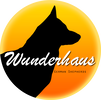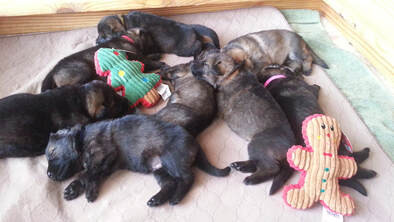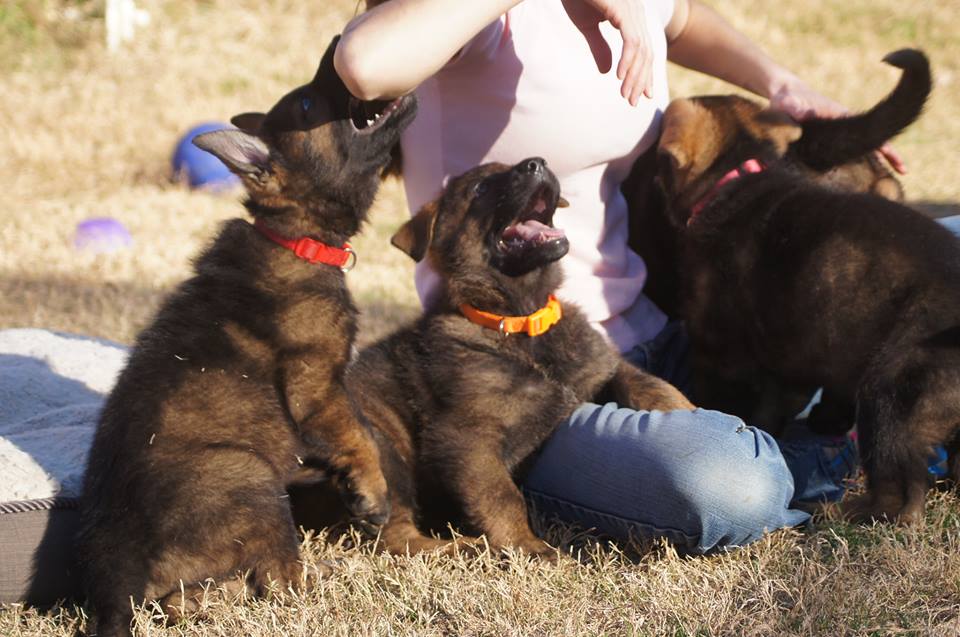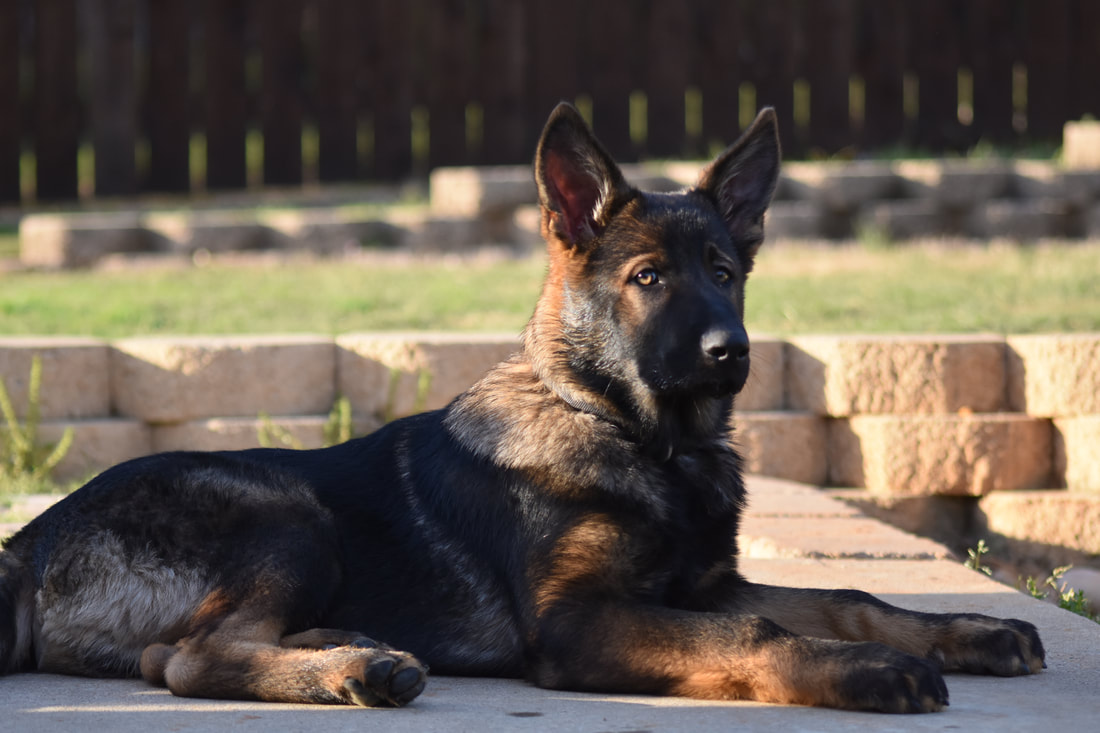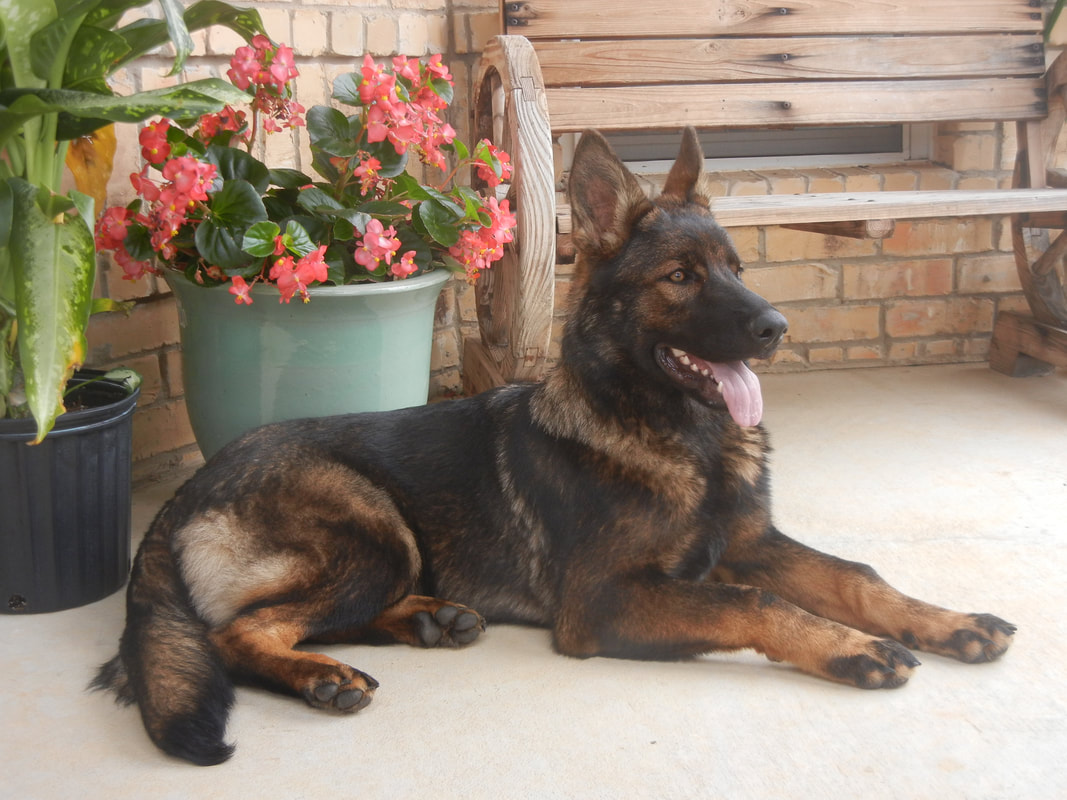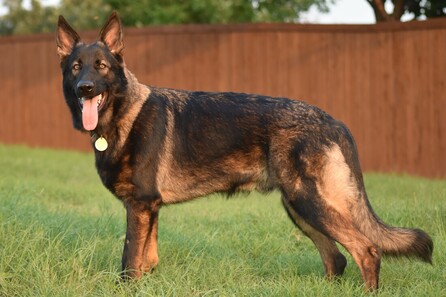𝒲𝓊𝓃𝒹𝑒𝓇𝒽𝒶𝓊𝓈 𝒫𝓊𝓅𝓅𝓎 𝒫𝓇𝑜𝑔𝓇𝒶𝓂
using PUppy culture
|
|
|
Our breeding program follows the Puppy Culture curriculum.
What is Puppy Culture?
Jane Killion founded Puppy Culture. We recommend Puppy Culture to all breeders and new puppy owners to follow during the first several weeks of their puppy's life to help form outstanding dispositions and solid nerves and, most importantly, to excel in socialization. Learn more about Puppy Culture here:
What is Puppy Culture?
We do everything possible to ensure our puppies get the best possible head start during those critical eight weeks. We strive to build the foundation for self-confidence and socialization in your puppy. You must continue building your pup's confidence and socializing your puppy out in the world. Challenge yourself to introduce your puppy to 100 people before your puppy is 12 weeks old. We encourage you to enroll in a group puppy class for enrichment and socialization. Training will significantly benefit you and your puppy if you continue with what we've started.
We are continually looking for educational opportunities to improve the health and well-being of our puppies.
We highly recommend new puppy owners purchase Puppy Culture's MADCAP UNIVERSITY: (Course) With Open Arms and a Level Head How to bring a Puppy into your life
We hope our puppies will bless your family as they have been a blessing to ours.
What is Puppy Culture?
Jane Killion founded Puppy Culture. We recommend Puppy Culture to all breeders and new puppy owners to follow during the first several weeks of their puppy's life to help form outstanding dispositions and solid nerves and, most importantly, to excel in socialization. Learn more about Puppy Culture here:
What is Puppy Culture?
We do everything possible to ensure our puppies get the best possible head start during those critical eight weeks. We strive to build the foundation for self-confidence and socialization in your puppy. You must continue building your pup's confidence and socializing your puppy out in the world. Challenge yourself to introduce your puppy to 100 people before your puppy is 12 weeks old. We encourage you to enroll in a group puppy class for enrichment and socialization. Training will significantly benefit you and your puppy if you continue with what we've started.
We are continually looking for educational opportunities to improve the health and well-being of our puppies.
We highly recommend new puppy owners purchase Puppy Culture's MADCAP UNIVERSITY: (Course) With Open Arms and a Level Head How to bring a Puppy into your life
We hope our puppies will bless your family as they have been a blessing to ours.
click here for our Puppy Essentials + Socialization page
Neonatal Program
|
Early Neurological Stimulation (ENS)
or Bio Sensor (also referred to as Neonatal Neuro Stimulation) Gayle Watkins, founder of Avidog Starting on Day 3 through Day 16, we perform five exercises. We complete the exercises from beginning to end before starting with the next pup. The handling of each puppy once per day involves the following exercises: 1. Tactical stimulation (between toes) 2. Head held erect 3. Head pointed down 4. Supine position 5. Thermal stimulation |
Gayle Watkins - Bio-Sensor Excercises
|
Early Scent Introduction (ESI)
Gayle Watkins, founder of Avidog
Starting on Day 3 through Day 16, we introduce a new scent daily to each puppy. We use natural items such as grass, dirt, and leaves. Essential oils, leather, wooden, and plastic items. Fruits, herbs, and spices (lemon, apples, rosemary, mint, and cloves.) We complete the exercises from beginning to end before starting with the next pup.
Gayle Watkins, founder of Avidog
Starting on Day 3 through Day 16, we introduce a new scent daily to each puppy. We use natural items such as grass, dirt, and leaves. Essential oils, leather, wooden, and plastic items. Fruits, herbs, and spices (lemon, apples, rosemary, mint, and cloves.) We complete the exercises from beginning to end before starting with the next pup.
Volhard Puppy Aptitude Testing (temperament test)
The test is ideally performed on puppies at 49 days old (7 weeks of age).
The test is ideally performed on puppies at 49 days old (7 weeks of age).
Critical Periods in Puppy Development
Neonatal Period Birth - 12 days
|
Wunderhaus provides a safe environment for the whelping of our puppies. During this time, puppies cannot regulate their body temperature and elimination. Puppies do respond to warmth, touch, and smell. On day 3, we introduce ESI and ENS to the pups. Puppies cannot see well or hear at this point. They will stay close to the Mother and littermates.
|
Transition Period 13 - 20 daysDuring this phase, we pick up the pups daily. It is important to cuddle them, talk to them, and spend a few minutes with each puppy.
The exciting news at this time: eyes are now open, and the puppy can hear! The puppies begin to walk in a wobbly fashion. They can also respond to taste and smell. |
Transition Period 21 - 23 daysThe puppies must have a stable environment. The whelping box is not to be moved! Puppies need to remain with their littermates and Mother. The pups' sight and smell function well now. Wunderhaus daily introduces new surfaces such as linoleum, wood, carpet, and concrete.
|
CANINE SOCIALIZATION PERIOD 21 - 49 daysPuppies must receive a lot of socialization! They need plenty of interaction and playtime with Mom and littermates to learn canine behaviors. It is also crucial that each of the pups have one-on-one individual attention with humans. It is essential to begin positive training at five weeks old. We expose the puppies to various noises and floor surfaces during this time.
|
Human Socialization Period 7 - 12 weeksPuppy is ready to go to their new family at eight weeks! They can now learn simple behavioral responses like sit, stay, and come. Housebreaking also begins. We can not stress enough the importance of socialization. The critical window for socialization is 8-16 weeks. Wunderhaus encourages you to enroll your puppy in a puppy kindergarten group class!
|
Fear Impact Period 8 - 11 weeksThis period is called the fear impact period for a reason. Anything that frightens your puppy during this period will have a more lasting effect than if it occurred at any other time in your puppy's life. Children or animals should not be given an opportunity to scare or hurt your puppy. It's important to keep all training positive and fun. Puppies have a short attention span, so you want to keep training sessions short.
|
SENIORITY CLASSIFICATION PERIOD 13 - 16 weeksAh! The teething phase. Beware of the land sharks! Positive training should continue, and you should be enrolled in a puppy kindergarten class. It's important to praise for the correct behaviors that you want.
Get your puppy out in the world! |
FLIGHT INSTINCT PERIOD 4 - 8 months Remember earlier? We mentioned socialization. This is when you'll find out if you properly socialized your puppy. Hopefully, you did! If you did not socialize during this period, you will likely take a different path in life than socialized pups. You may notice changes in your dog during this time; they are probably going through their "flight instinct" period. Similar to a teenager going through puberty, your puppy is changing physiologically.
|
SECOND FEAR PERIOD 6 - 14 monthsDuring this stage,
A female will experience her first heat anywhere from 6-12 months. A heat lasts 21 days. Keep the boys away! A male will begin to lift his leg. Their puppy coat will transition to its adult coat, starting down the spine. It's important to keep all situations positive and fun during this phase. Be patient. Be sure to enforce positive socialization exposure, but avoid overwhelming situations. Your puppy may appear apprehensive, so be sure not to pressure them. Let them approach as they are ready. It's important to praise confidence. |
MATURITY 1 - 4 years It's important that your pup remains crated or has a similar structure when you cannot supervise his behavior. Suppose you were lax in training, starting at 9-10 weeks, etc. In that case, you may now see the things you missed:
|
Copyright © 2023 Wunderhaus German Shepherds LLC - All Rights Reserved.
